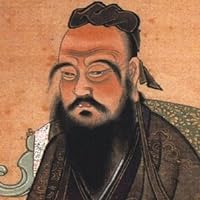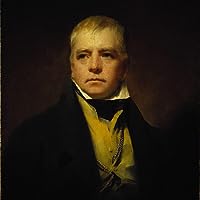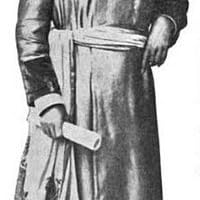Commerce Quotes
Quotes tagged as "commerce"
Showing 1-30 of 99

“The Seven Social Sins are:
Wealth without work.
Pleasure without conscience.
Knowledge without character.
Commerce without morality.
Science without humanity.
Worship without sacrifice.
Politics without principle.
From a sermon given by Frederick Lewis Donaldson in Westminster Abbey, London, on March 20, 1925.”
―
Wealth without work.
Pleasure without conscience.
Knowledge without character.
Commerce without morality.
Science without humanity.
Worship without sacrifice.
Politics without principle.
From a sermon given by Frederick Lewis Donaldson in Westminster Abbey, London, on March 20, 1925.”
―

“How dreadful are the curses which Mohammedanism lays on its votaries! Besides the fanatical frenzy, which is as dangerous in a man as hydrophobia in a dog, there is this fearful fatalistic apathy. The effects are apparent in many countries. Improvident habits, slovenly systems of agriculture, sluggish methods of commerce, and insecurity of property exist wherever the followers of the Prophet rule or live. A degraded sensualism deprives this life of its grace and refinement; the next of its dignity and sanctity. The fact that in Mohammedan law every woman must belong to some man as his absolute property – either as a child, a wife, or a concubine – must delay the final extinction of slavery until the faith of Islam has ceased to be a great power among men. Thousands become the brave and loyal soldiers of the faith: all know how to die but the influence of the religion paralyses the social development of those who follow it. No stronger retrograde force exists in the world. Far from being moribund, Mohammedanism is a militant and proselytizing faith. It has already spread throughout Central Africa, raising fearless warriors at every step; and were it not that Christianity is sheltered in the strong arms of science, the science against which it had vainly struggled, the civilisation of modern Europe might fall, as fell the civilisation of ancient Rome.”
― The River War
― The River War
“Doing business without advertising is like winking at a girl in the dark. You know what you are doing but nobody else does.”
― Marketing Management and Administrative Action
― Marketing Management and Administrative Action
“Your comfort zone is a place where you keep yourself in a self-illusion and nothing can grow there but your potentiality can grow only when you can think and grow out of that zone.”
―
―

“She felt the cold blast from the sterile air conditioning on her bare arms and thighs, as she ambled down the center of the shopping complex's ground floor.
The scene was a swirl of candy bright lights--the Victoria's Secret fuchsia signboard, signboards which lured one to purchase "confidence," or "sexual appeal," or whatever it was that was being advertised--the fluorescent lights in each store, contrasting with the shiny, black-tiled walls and eye-catching speckled marble tiles on the ground.
One could lick the floor--the tiles were spotless, clean like the fake air she was breathing in, like the atoms and cells in her that were decaying in stale neglect.”
― Jack in the Box
The scene was a swirl of candy bright lights--the Victoria's Secret fuchsia signboard, signboards which lured one to purchase "confidence," or "sexual appeal," or whatever it was that was being advertised--the fluorescent lights in each store, contrasting with the shiny, black-tiled walls and eye-catching speckled marble tiles on the ground.
One could lick the floor--the tiles were spotless, clean like the fake air she was breathing in, like the atoms and cells in her that were decaying in stale neglect.”
― Jack in the Box
“Whomsoever controls the volume of money in any country is absolute master of all industry and commerce and when you realize that the entire system is very easily controlled, one way or another, by a few powerful men at the top, you will not have to be told how periods of inflation and depression originate.”
―
―
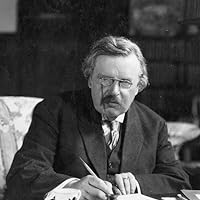
“A pickpocket is obviously a champion of private enterprise. But it would perhaps be an exaggeration to say that a pickpocket is a champion of private property. The point about Capitalism and Commercialism, as conducted of late, is that they have really preached the extension of business rather than the preservation of belongings; and have at best tried to disguise the pickpocket with some of the virtues of the pirate.”
― The Outline of Sanity
― The Outline of Sanity

“The neighborhood stores are an important part of a city child's life.”
― A Tree Grows in Brooklyn
― A Tree Grows in Brooklyn
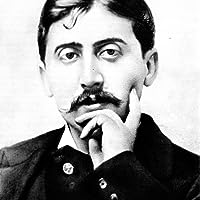
“All the products of one period have something in common; the artists who illustrate the poetry of their generation are the same artists who are employed by the big financial houses. And nothing reminds me so much of the monthly parts of Notre-Dame de Paris, and of various books by Gérard de Nerval, that used to hang outside the grocer's door at Combray, than does, in its rectangular and flowery border, supported by recumbent river-gods, a 'personal share' in the Water Company.”
― In the Shadow of Young Girls in Flower
― In the Shadow of Young Girls in Flower

“When you put yourself in the customer’s shoes and begin your dialog from there, an immediate connection develops that stems beyond basic commerce and encourages loyalty.”
―
―

“Children, awkward, isolate, their bodies crammed to bursting with caffein and sugar and pop music and cologne and perfume and hairgel and pimple cream and growth hormone-treated hamburger meat and premature sex drives and costly, fleeting, violent sublimations. It's all part of the conspiracy . . . all of it trying to convince them that they're here to be trained for lives of adventure and glamor and heroism, when in fact they're here only to be trained for more of the same, for lives of plunking in the quarters, paying a premium for the never-ending series of shabby fantasies to come, the whole lifelong laser light show of glamorous degradation and habitual novelty and fun-loving murder and global isolation.”
― The Savage Girl
― The Savage Girl

“An ironic religion -- one that never claims to be absolutely true but only professes to be relatively beautiful, and never promises salvation but only proposes it as a salubrious idea. A century ago there were people who thought art was the thing that could fuse the terms of this seemingly insuperable oxymoron, and no doubt art is part of the formula. But maybe consumerism also has something to teach us about forging an ironic religion -- a lesson about learning to choose, about learning the power and consequences, for good or ill, of our ever-expanding palette of choices. Perhaps . . . the day will come when the true ironic religion is found, the day when humanity is filled with enough love and imagination and responsibility to become its own god and make a paradise of its world, a paradise of all the right choices.”
― The Savage Girl
― The Savage Girl
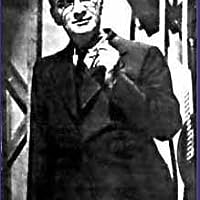
“Restaurant, hey. That's what I've got. Whole goddam country lives selling hot dogs to each other.”
― The Postman Always Rings Twice
― The Postman Always Rings Twice
“You can get anything you want from anywhere in the world at a bargain price, but don't [whatever you do] expect to understand how it was made or how it got to you.”
― Material World: The Six Raw Materials That Shape Modern Civilization
― Material World: The Six Raw Materials That Shape Modern Civilization

“That's the positive aspect of trade I suppose. The world gets stirred up together. That's about as much as I have to say for it.”
― The Dream Merchant
― The Dream Merchant

“Why pay someone else ten dollars for one item that does two things, when for five dollars apiece I can sell you two items that each does one thing? It’s the same price, and the same things, but it’s not the same thing.”
― There are Two Typos of People in This World: Those Who Can Edit and Those Who Can't
― There are Two Typos of People in This World: Those Who Can Edit and Those Who Can't

“Sometimes money finds its own expression,” Jake said. “Like water flowing through a canyon, only the walls are laws and regulations. It follows the path of least resistance and leaves the landscape altered behind it.”
― immechanica
― immechanica

“Commerce is a cure for the most destructive prejudices; for it is almost a general rule, that wherever we find agreeable manners, there commerce flourishes; and that wherever there is commerce, there we meet with agreeable manners.”
― The Spirit of the Laws
― The Spirit of the Laws

“It's clear: North Korea is a total sham. Officially, it outlaws private business, but in the shadows it lets it thrive. Since there are hardly any markets, merchants warehouse their Chinese products at home and sell them to their neighbors and acquaintances. This farce is the only thing preventing the bankruptcy of the North Korean state and the pauperization of its citizenry.”
― The Aquariums of Pyongyang: Ten Years in the North Korean Gulag
― The Aquariums of Pyongyang: Ten Years in the North Korean Gulag

“I can picture purchasing a product, such as a vehicle, a bicycle, or even grocery items, and seeing the emissions to produce the item and transport it to its location on its product tag, or by scanning its bar code. Items with top quartile emissions or high ESG performance for the category may have a different color-coded tag. The price tag will become a product tag and information about the item and the producer would be available in its online description,”
― The Purpose-Driven Marketing Handbook: How to Discover Your Impact and Communicate Your Business Sustainability Story to Grow Sales, Retain Talent, and Attract Investors
― The Purpose-Driven Marketing Handbook: How to Discover Your Impact and Communicate Your Business Sustainability Story to Grow Sales, Retain Talent, and Attract Investors

“Returning to Jamaica, he had the sense of re-entering a place much less likely to alter in the coming years. Year in, year out, the cane fields produced their riches, the gangs swung their way through them, slaves were brought, seasoned, used up, replaced. Planters would go on making improvements to their great houses, to methods of production, and yes, to the conditions in which their slaves lived and worked, because it was in their interest to do so. But fundamentally the structure of life and of society did not change.”
― Joseph Knight
― Joseph Knight
All Quotes
|
My Quotes
|
Add A Quote
Browse By Tag
- Love Quotes 98k
- Life Quotes 76.5k
- Inspirational Quotes 73k
- Humor Quotes 44k
- Philosophy Quotes 30k
- Inspirational Quotes Quotes 27k
- God Quotes 26.5k
- Truth Quotes 24k
- Wisdom Quotes 23.5k
- Romance Quotes 23.5k
- Poetry Quotes 22.5k
- Death Quotes 20k
- Life Lessons Quotes 19.5k
- Happiness Quotes 18.5k
- Hope Quotes 18k
- Faith Quotes 18k
- Quotes Quotes 17.5k
- Inspiration Quotes 17k
- Spirituality Quotes 15k
- Religion Quotes 15k
- Motivational Quotes 15k
- Writing Quotes 15k
- Relationships Quotes 14.5k
- Life Quotes Quotes 14.5k
- Love Quotes Quotes 14k
- Success Quotes 13.5k
- Time Quotes 12.5k
- Motivation Quotes 12.5k
- Science Quotes 11.5k
- Motivational Quotes Quotes 11.5k

